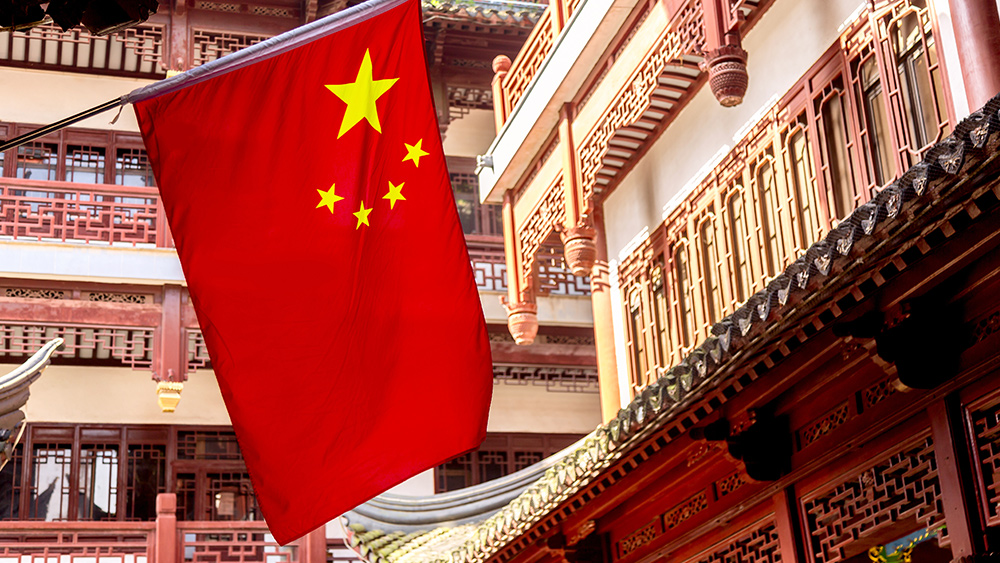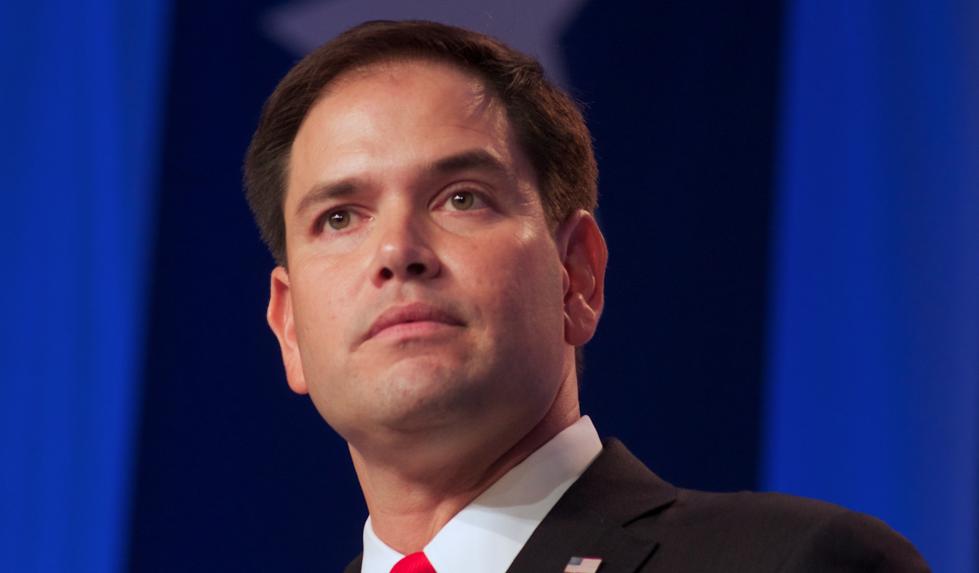UN official’s laudatory remarks on China spark concerns over influence and global leadership
05/16/2025 / By Willow Tohi

- Tom Fletcher, the UN’s Under-Secretary-General for Humanitarian Affairs, praised China’s green energy initiatives and suggested global leadership in climate transition should look to Beijing, highlighting a potential shift in the UN’s orientation towards China.
- Fletcher’s remarks come amid concerns over China’s expanding influence in international institutions and its strategic use of green initiatives to consolidate power and control over global supply chains, particularly in solar energy and other critical technologies.
- During his visit, Fletcher signed a letter of intent with the Chinese Meteorological Administration for climate prediction technology and lauded China’s Belt and Road Initiative, indicating a growing partnership between the UN and China in climate and infrastructure projects.
- Critics warn of the risks associated with overreliance on China for clean energy technologies, as China’s dominance in the supply chain could lead to economic and geopolitical leverage, potentially compromising global energy security and innovation.
- As the U.S. reduces its financial contributions to the UN, China’s increased funding and influence are shaping the organization’s priorities, raising concerns about the alignment of UN goals with China’s strategic interests and the potential for a new global governance model driven by Beijing.
In a recent interview, Tom Fletcher, the United Nations’ Under-Secretary-General for Humanitarian Affairs and Emergency Relief Coordinator, praised China’s green energy initiatives and suggested the world look to Beijing for leadership in the global climate transition. Fletcher’s remarks, made during his April visit to China, have raised eyebrows among observers who warn of China’s strategic influence over international institutions and its growing dominance in critical supply chains.
The UN’s shifting focus on China
Fletcher’s admiration for China’s environmental efforts, particularly its top-down approach to controlling the solar supply chain, comes amid growing concern over Beijing’s expanding influence within global organizations. As the U.S. scales back its funding and involvement in international bodies, China has stepped up its contributions, often targeting agencies where it can wield political influence.
During his trip, Fletcher met with Chinese officials and signed a letter of intent with the Chinese Meteorological Administration to explore partnerships in climate prediction technology. He also lauded the Belt and Road Initiative (BRI), describing Chinese infrastructure projects in Kenya as “impressive” and highlighting the potential for artificial intelligence to combat global climate change.
His remarks reflect a broader shift in the UN’s orientation, with some critics arguing that the organization is increasingly aligning with China’s strategic interests. As the U.S. reduces its financial support for humanitarian programs, China’s growing presence in UN forums has allowed it to shape narratives and promote its vision of global governance.
China’s strategic playbook
China’s ascent as a global leader in renewable energy is not accidental—it is the result of decades of meticulous planning and strategic investment. The country has capitalized on its dominance in critical supply chains, particularly in solar panels, electric vehicles and battery storage, to position itself as an indispensable player in the fight against climate change.
However, critics argue that China’s leadership is less about environmental stewardship and more about consolidating power. By leveraging its control over key industries, Beijing has sought to export dependency on its technologies and resources, often under the banner of sustainability.
“China’s green agenda is not about saving the planet—it’s about consolidating control over global supply chains,” said a senior analyst at Power the Future, a think tank that tracks China’s influence on international climate policy. “Every UN partnership or multilateral agreement promoted by Beijing should be viewed through the lens of strategic competition.”
Historically, China has used its influence in international institutions to advance its geopolitical goals. During the COVID-19 pandemic, for example, Beijing sought to shape the narrative around the World Health Organization’s response, often casting itself as a leader in global health governance. Similar patterns are now emerging in the climate arena, with China using its green credentials to strengthen its hand in global affairs.
The risks of reliance on China
Fletcher’s comments have also reignited debates over the risks of relying on China for clean energy technologies. While China’s advancements in solar and wind energy are undeniable, its dominance in the supply chain poses significant challenges for global energy security.
The U.S. and its allies have long warned of the dangers of overdependence on Chinese manufacturing and minerals. From rare earth metals to critical components for renewable energy systems, China controls a disproportionate share of the supply chain, giving it leverage to wield economic and geopolitical power.
“By controlling the green supply chain, China can dictate the terms of global energy transitions,” said Michael Pillsbury, a prominent China policy analyst. “This is not leadership—it’s leverage.”
In contrast to China’s state-driven approach, Western nations have traditionally emphasized innovation and private-sector competition. However, as the U.S. scales back its international commitments, some fear that Fletcher’s praise for China’s model could embolden Beijing’s efforts to exploit its dominance in the green energy sector.
The UN’s changing winds
Fletcher’s remarks also highlight a broader shift within the UN itself. As the U.S. reduces its financial contributions to the organization, China has stepped into the void, becoming one of the UN’s largest donors. This shift has allowed Beijing to shape the organization’s priorities and amplify its narrative on global issues.
“China’s influence over the UN is not a coincidence,” said a former U.S. diplomat who served at the UN. “It’s part of a long-term strategy to reshape global institutions in its image.”
During his April visit, Fletcher also hinted at a broader reorientation in humanitarian aid. He called for a “humanitarian reset,” suggesting that global aid efforts should be more closely tied to green initiatives and AI-driven climate prediction systems. While these ideas may seem progressive on the surface, critics warn that they could further entrench China’s influence over international aid programs.
A world divided?
Fletcher’s praise for China’s green leadership raises critical questions about the future of global governance. As the U.S. steps back from its traditional role as a global leader, will China’s vision of a green-led world become the new norm? Or will the international community find alternative pathways that balance innovation, environmental stewardship and geopolitical stability?
For now, the signs are concerning. China’s growing influence over global institutions, combined with its dominance in critical supply chains, has created a dynamic where Beijing’s interests increasingly shape the global agenda. As the world grapples with the challenges of climate change, it must remain vigilant to the risks of relying too heavily on any single nation’s leadership—especially when that leadership is driven by strategic interests rather than shared values.
Sources for this article include:
Submit a correction >>
Tagged Under:
big government, China, Clean Energy, climate, communism, geopolitical stability, globalism, green tyranny, national security, supply chain, UN
This article may contain statements that reflect the opinion of the author
RECENT NEWS & ARTICLES
COPYRIGHT © 2018 ENSLAVED.NEWS
All content posted on this site is protected under Free Speech. Enslaved.news is not responsible for content written by contributing authors. The information on this site is provided for educational and entertainment purposes only. It is not intended as a substitute for professional advice of any kind. Enslaved.news assumes no responsibility for the use or misuse of this material. All trademarks, registered trademarks and service marks mentioned on this site are the property of their respective owners.



















